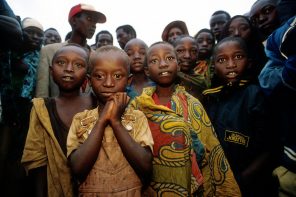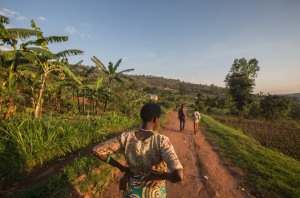Today is the 17th anniversary of the start of the Rwandan genocide, and Kigali is quiet, as it has been every year I’ve witnessed this day. The day also begins a week of mourning that changes the mood here. There are no weddings and no celebrations; there’s no relaxing with a Primus in hand and sharing stories of the day at a local bar. I hear there’s no “normal” music on the radio this year either, but I don’t remember ever hearing normal music on the radio in this week. Television runs documentaries and films about the genocide and little, if anything, else.
This is a week apart, and a week that’s difficult to understand. Last year, there was a debate here about the films that were shown, in particular at Amahoro Stadium, where a graphic montage set off a wave of wailing last year. Some said these films are re-traumatizing; others thought that “people who don’t know what happened” — which is a way of saying “people who weren’t here” — need to understand the “full impact.” This year, the head of the National Commission Against Genocide, which organizes the memorial programs, told me they won’t show those films publicly; people can seek them out themselves. But no doubt those fissures remain — who was here, who wasn’t, who lives with what memories, who lives with what kind of guilt. This is a week that brings all that up, but it’s not a week anyone gets any closer to talking about it.
But the point is, rightly, the remembrance. It’s something everyone here takes very seriously. The dead are reburied in communal memorial graves. Pilgrimages are made to where one’s parents or siblings — or entire families — died, on the day they were killed. Today starts 100 days in which memory takes over geography, time and place.
Those journeys don’t belong to me. I don’t share in these memories or these legacies, but all of us can share in the call. Twibuke. Let us remember.



